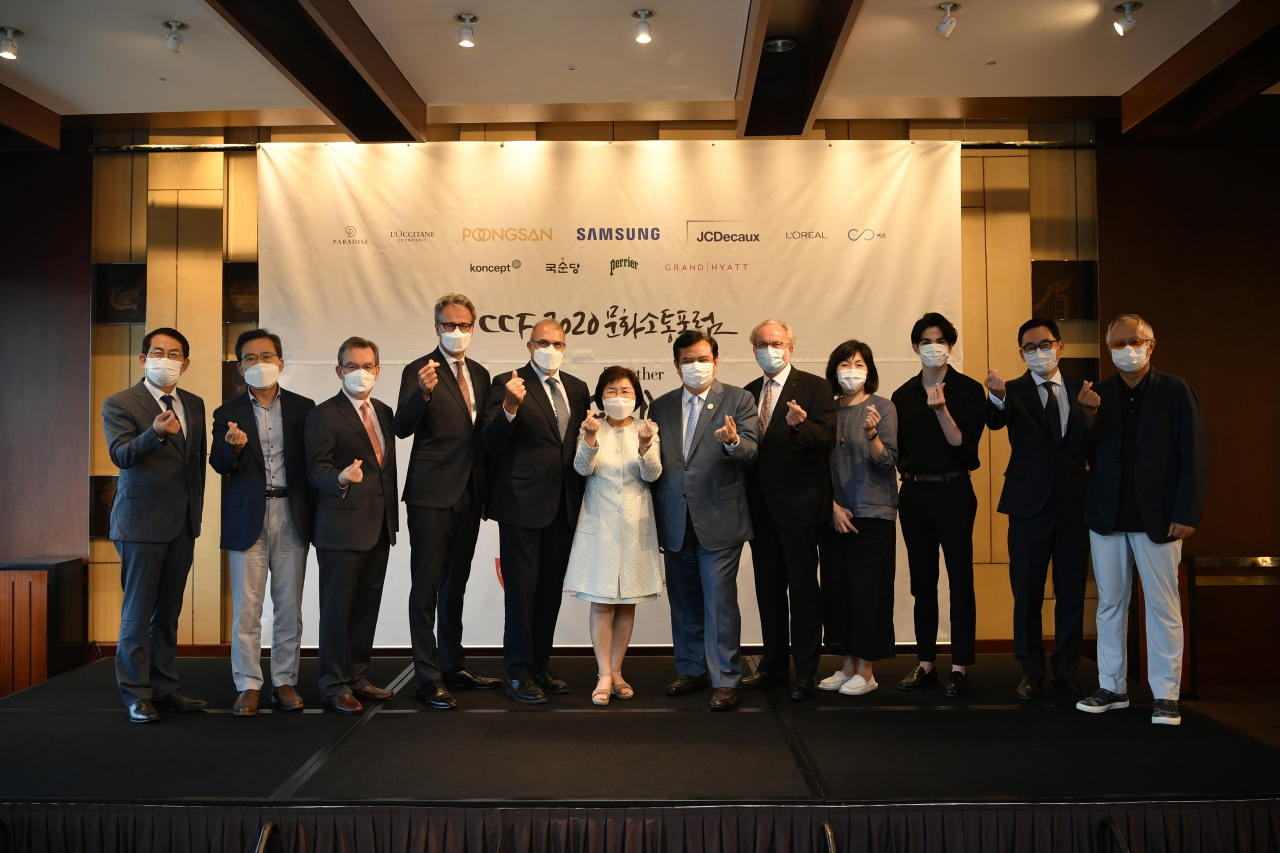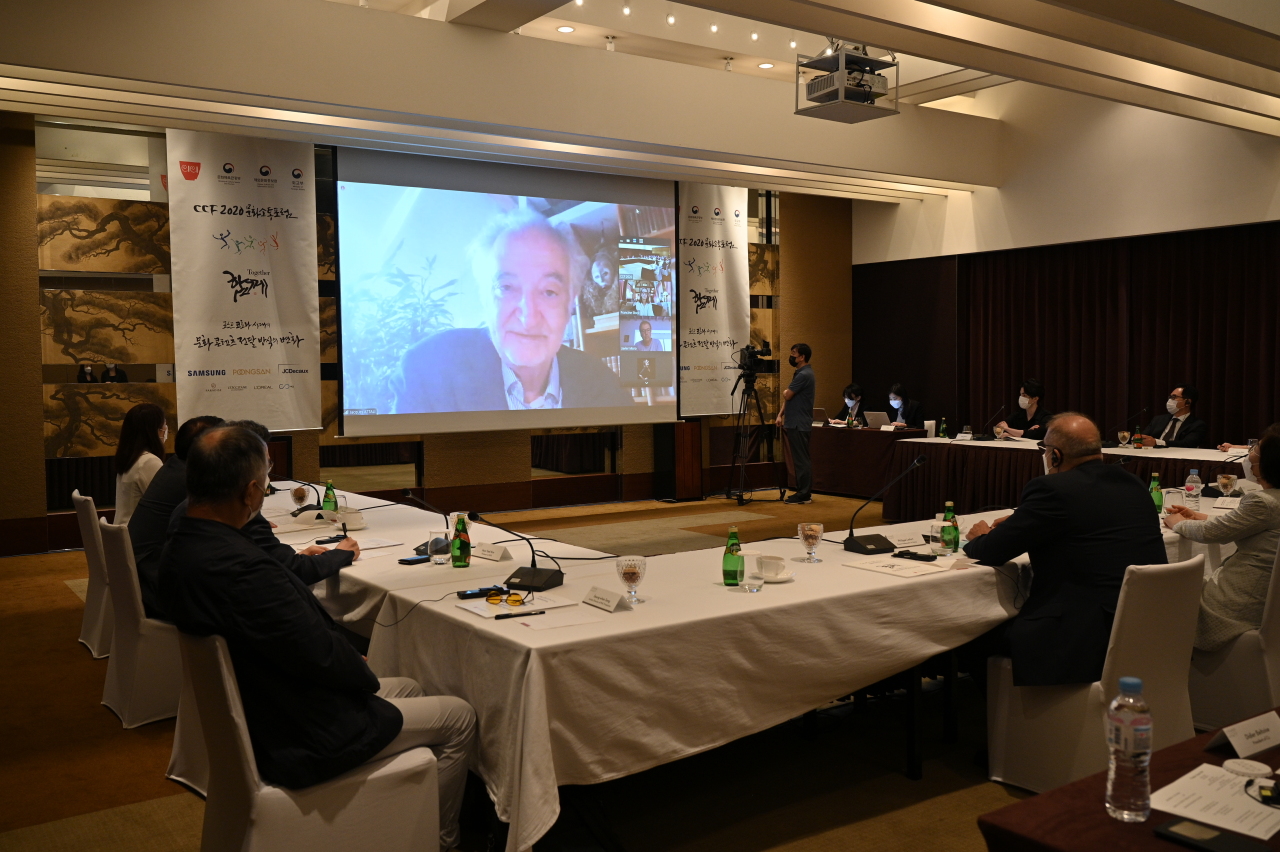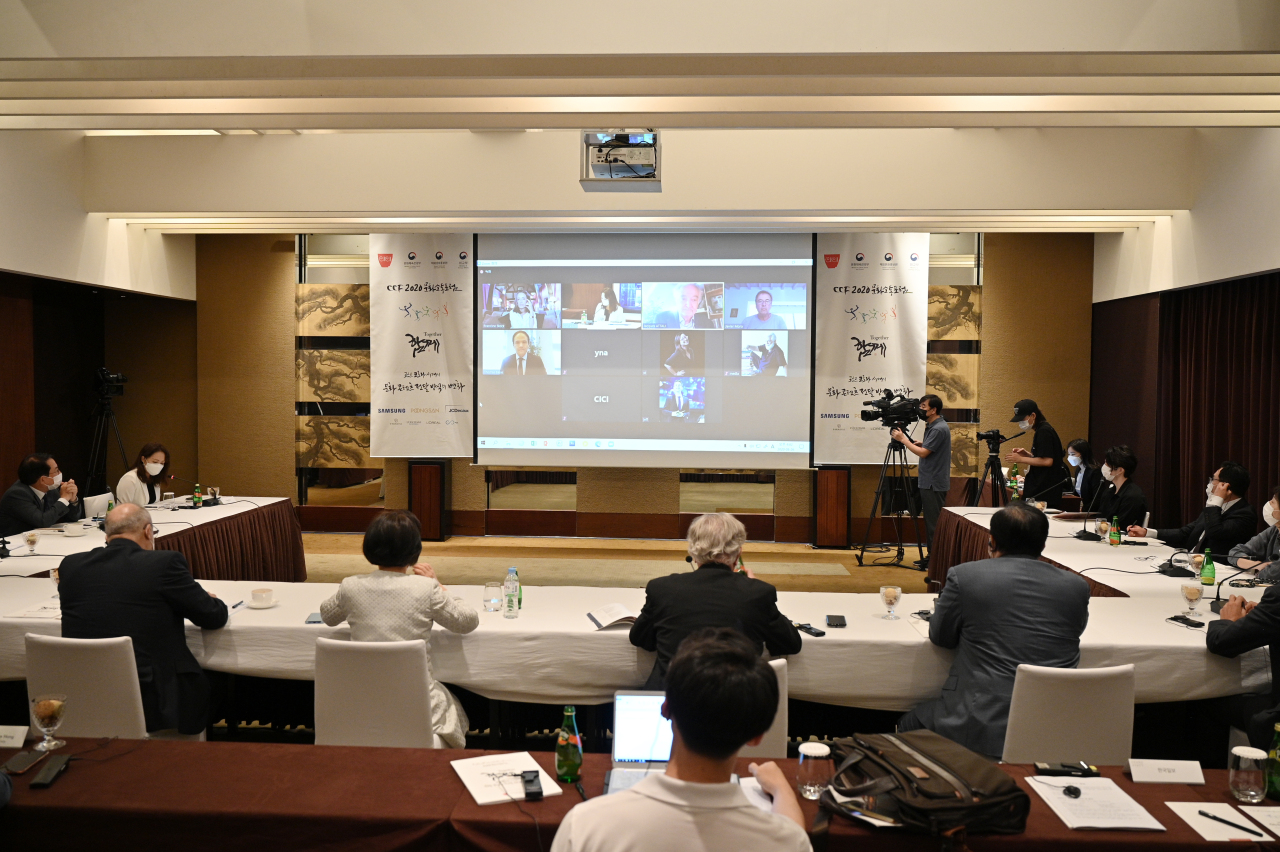Cultural Communications Forum 2020: Should cultural content go online?
By Lim Jang-wonPublished : Aug. 27, 2020 - 13:39

As COVID-19 brings many changes to the culture industry, international leaders in cultural communication came together online Wednesday and Thursday to discuss changing delivery methods for cultural content in the COVID-19 era at the 11th Cultural Communications Forum.
Due to the spread of COVID-19, international scholars invited to the forum joined remotely through videoconference. The Corea Image Communication Institute organized the forum jointly with the Ministry of Culture, Sports and Tourism, the Ministry of Foreign Affairs and the Korean Culture and Information Service.
The speakers shared the view that COVID-19 has become an accelerator of cultural change. In the midst of these rapid changes, speakers stressed the importance of adjustment, though the South Korean panelists and the international scholars differed on a number of matters.
Those differences were rooted in the differences in the COVID-19 situation in Korea and the rest of the world. While it has become the norm in Korea to wear masks while enjoying cultural content, that is still not the case in many parts of the world, where safe offline performances are nearly impossible.

French scholar Jacques Attali, Spanish author Javier Moro and the BBC’s Francine Stock, who spoke on the first day, all maintained that online performances and online platforms for cultural content are the way of the future.
“What is important here is that pandemic accelerates changes. The infrastructure that enabled survival of modern art has been discontinued. New art forms that utilize new technology will appear,” said Attali at the event.
Attali predicted that the use of holograms would be enhanced and advancements in digital instruments would be accelerated. He also said cultural content would focus more on the themes of death and time.
“Due to the pandemic, many people are remembering what many have forgotten before. The fact that we will die one day is reminded,” said Attali. “A lot of work will deal with the importance of time. We already see this, and I believe it will continue to the future.”
Jeff Benjamin, a well-known K-pop columnist, gave examples of BTS and SuperM performing online to much success, showing that online concerts can work. While K-pop groups -- which had access to technology that allowed the artists and audience to interact with each other -- delivered successful online concerts, other artists around the world, lacking such technology, had difficulty replicating their success.
To make online performances more exciting and interactive, Ana Serrano, president of OCAD University in Toronto, suggested that concrete materials related to the shows be sent to audience members through the mail, just as light sticks were sent out to K-pop fans before concerts.

The Korean panelists at the forum expressed more apprehension about going online.
“In Korea, audience members wore masks and sanitized their hands to watch performances. We didn’t have a problem,” said Song Seung-whan, executive artistic director of PMC Production. “Changing from contact performances to online performances is taking the easy way and also an idle way. The live element of a performance is difficult to deliver via videos.”
Song said participants should not give up trying to maintain traditional methods of cultural content delivery. He also disputed Attali’s statement about holograms, saying this art form had yet to prove successful, despite many attempts.
The Korean panelists said they hoped the government would take into account the great success of offline concerts up to this point when formulating future policies.
Another problem mentioned at the forum was that online materials may be more susceptible to hacking and piracy.
Writer Javier Moro observed that COVID-19 had led to an increase in e-book sales, and said he’d discovered international authors because of COVID-19 whom he might not have known about otherwise. But now he is concerned as a writer that e-books can be hacked and pirated.
Another topic raised was the need for new policies to protect cultural diversity as cultural content goes online.
“What makes people want to see an everyday performance online if I can watch the very best performance?” said Sripriya Ranganathan, Indian ambassador to Korea.
Although if everything went online it could be seen as a way of giving artists equal opportunities, it could also make it difficult for new artists to emerge because offline activities are crucial for artists who are just starting out, according to Mickey Kim, a director at Google.
Many questions were raised in the forum, but experts said it was difficult to predict what might be ahead and said it would be some time before there were any definitive answers.
Cedric O, the French secretary of state for the digital sector, who gave the opening speech Wednesday, said new policies are needed to maintain the diversity of cultural content as platforms such as Spotify and Netflix could gain a monopoly.
An additional problem with cultural content going online is that people without access to the internet or those who are unable to use digital technology could be left behind.
Although older people are increasingly using online material since the COVID-19 crisis began, experts feared that many others were having difficulty enjoying cultural content.
Because going online and remaining offline both have pros and cons, technological advances are needed more than ever to facilitate both methods of delivery, according to the experts. The different COVID-19 situations in each country make blanket recommendations difficult -- for example, in some countries it is difficult to go to a bookstore to buy a book, but this is not the case in Korea.
Since 2010 CICI has held its forum every year, offering a chance for foreign opinion leaders to learn about Korean culture and share their own cultures.
By Lim Jang-won (ljw@heraldcorp.com)
-
Articles by Lim Jang-won










![[Kim Seong-kon] Democracy and the future of South Korea](http://res.heraldm.com/phpwas/restmb_idxmake.php?idx=644&simg=/content/image/2024/04/16/20240416050802_0.jpg&u=)








![[Today’s K-pop] BTS pop-up event to come to Seoul](http://res.heraldm.com/phpwas/restmb_idxmake.php?idx=642&simg=/content/image/2024/04/17/20240417050734_0.jpg&u=)